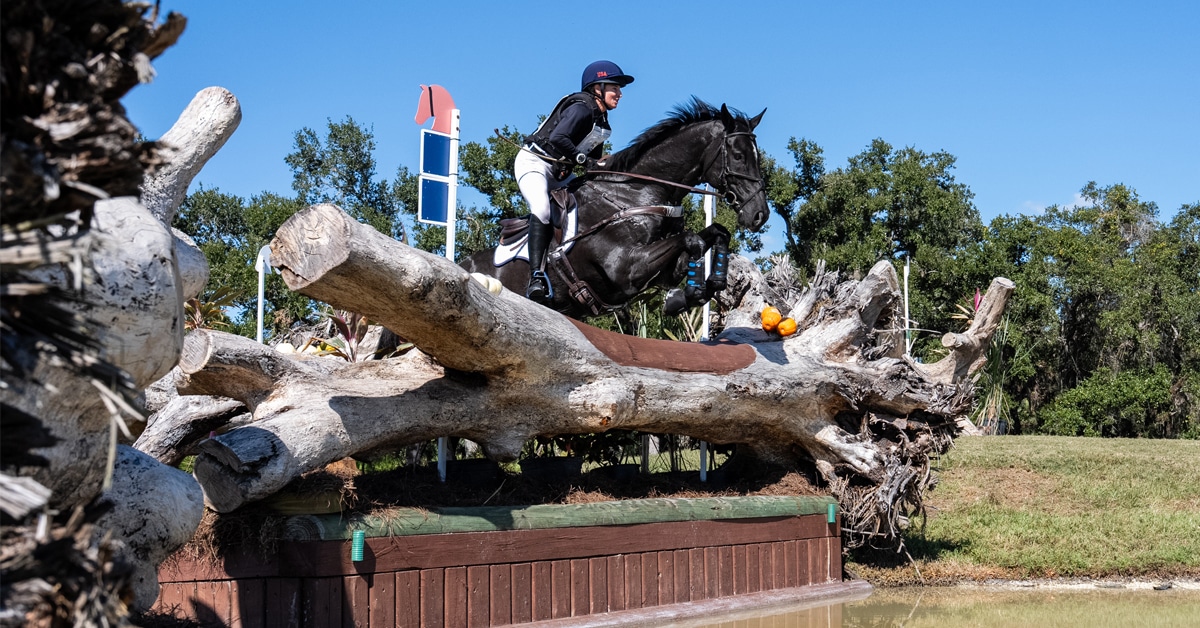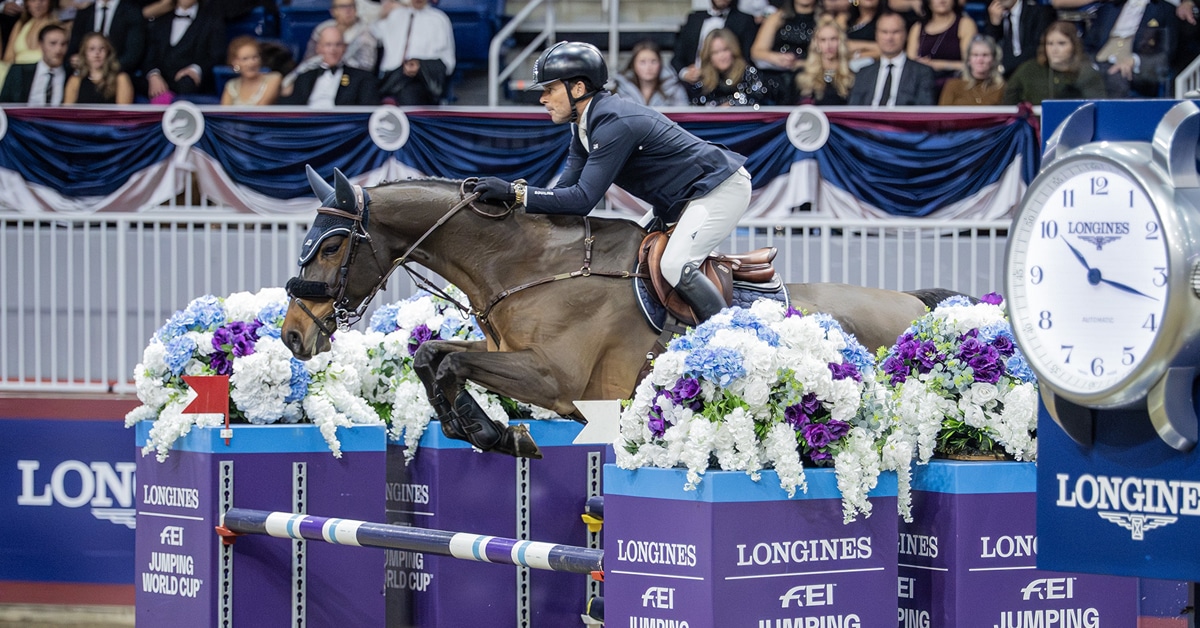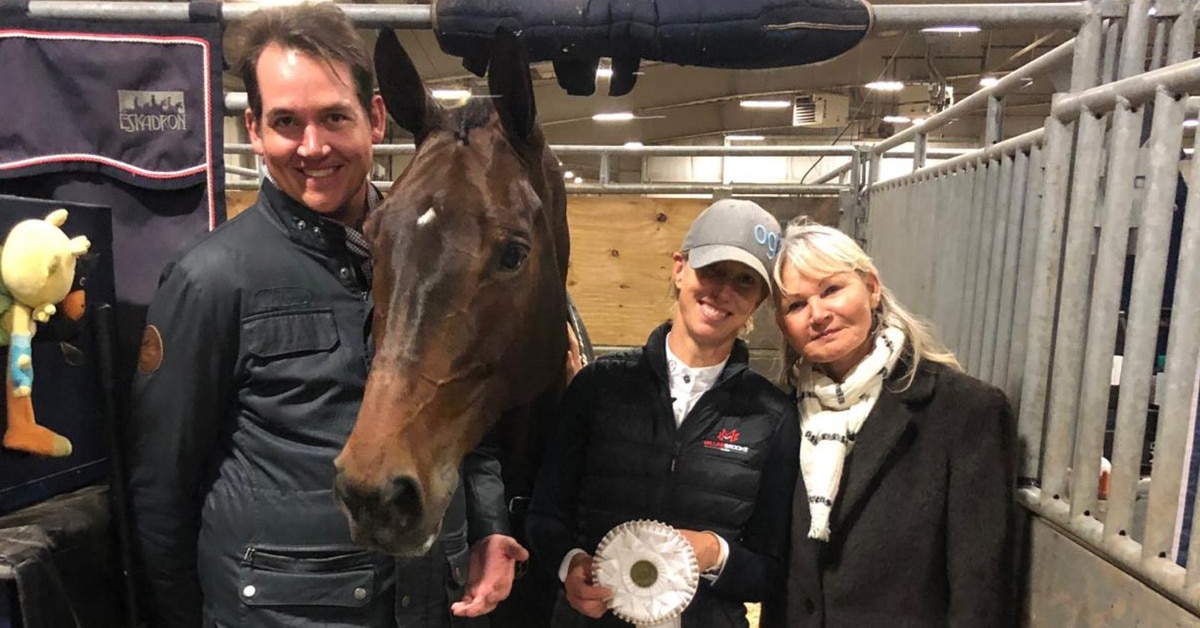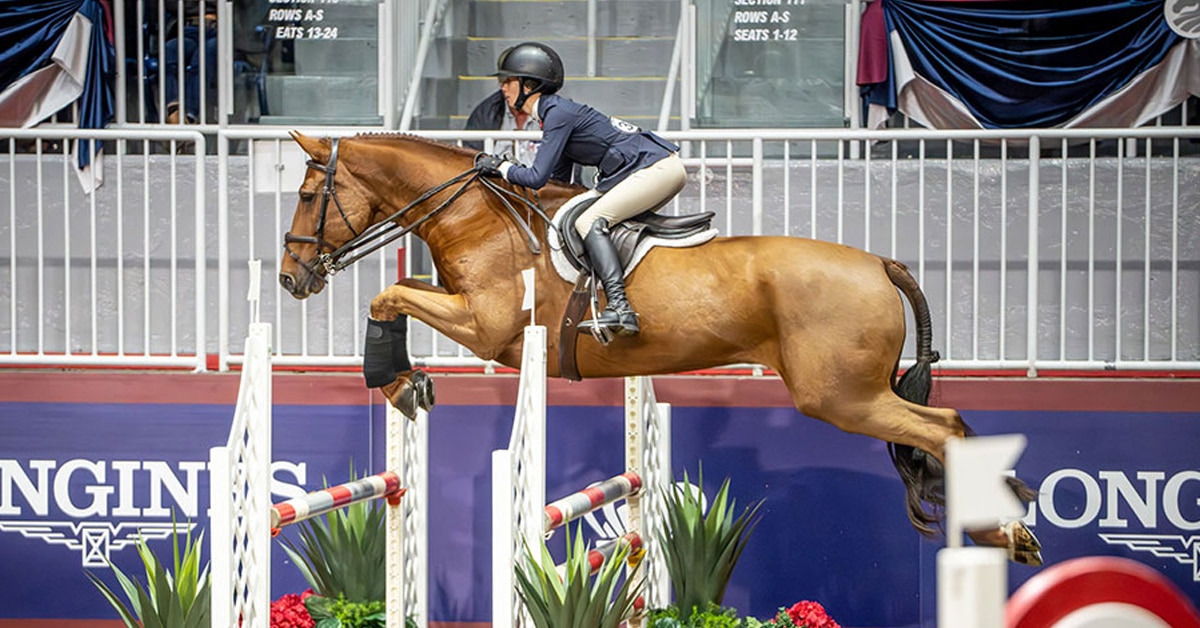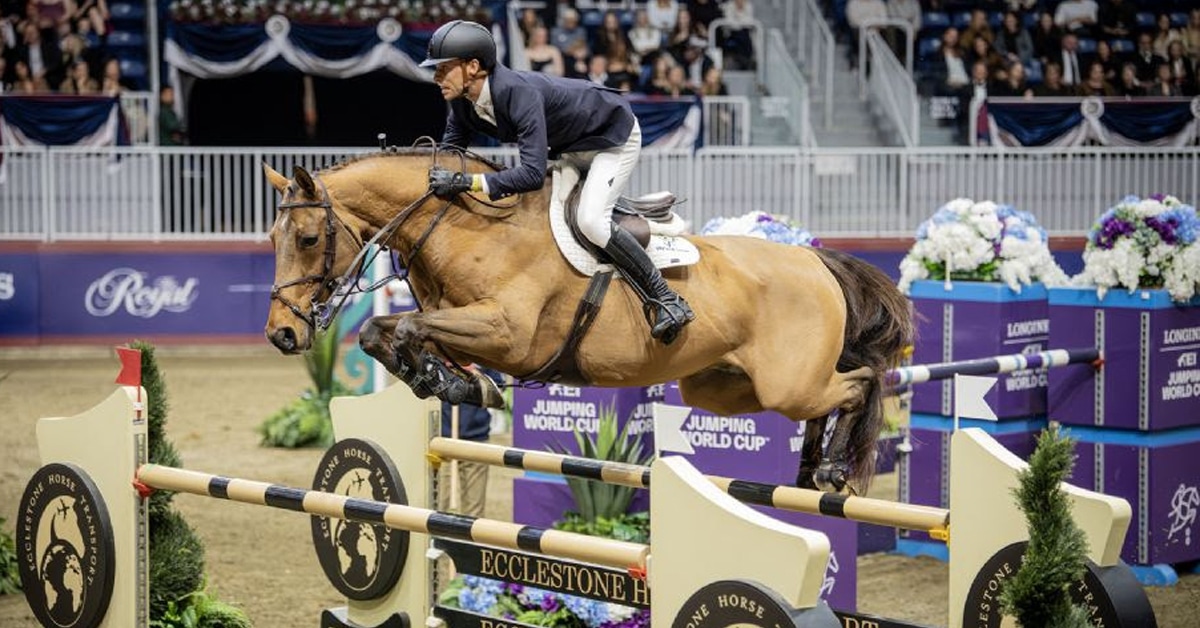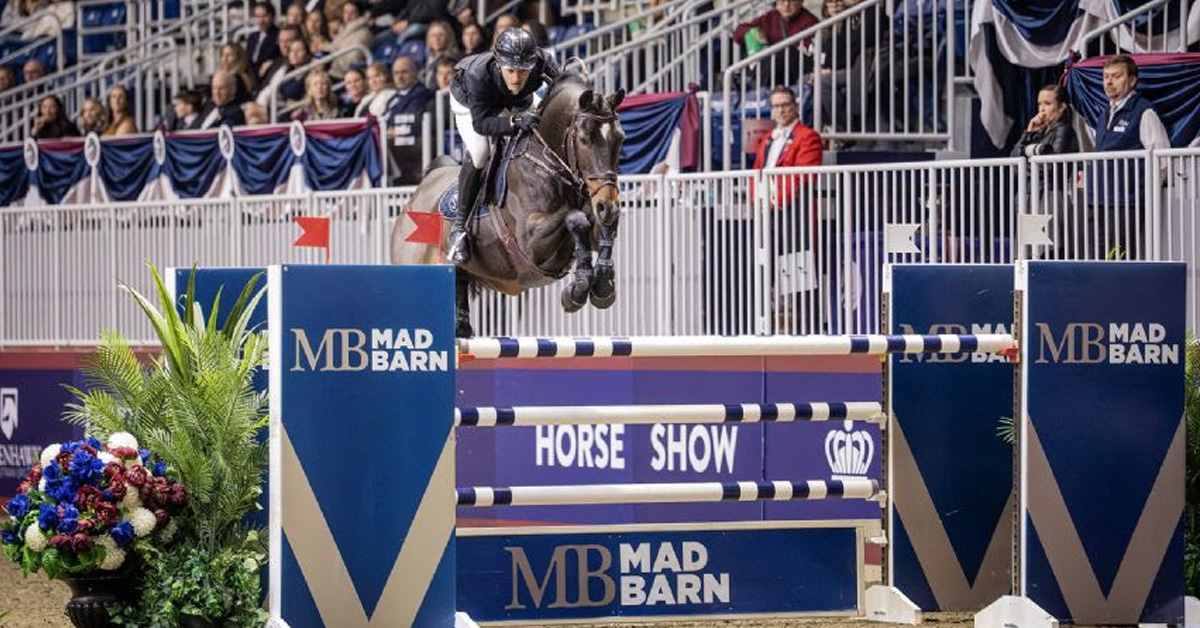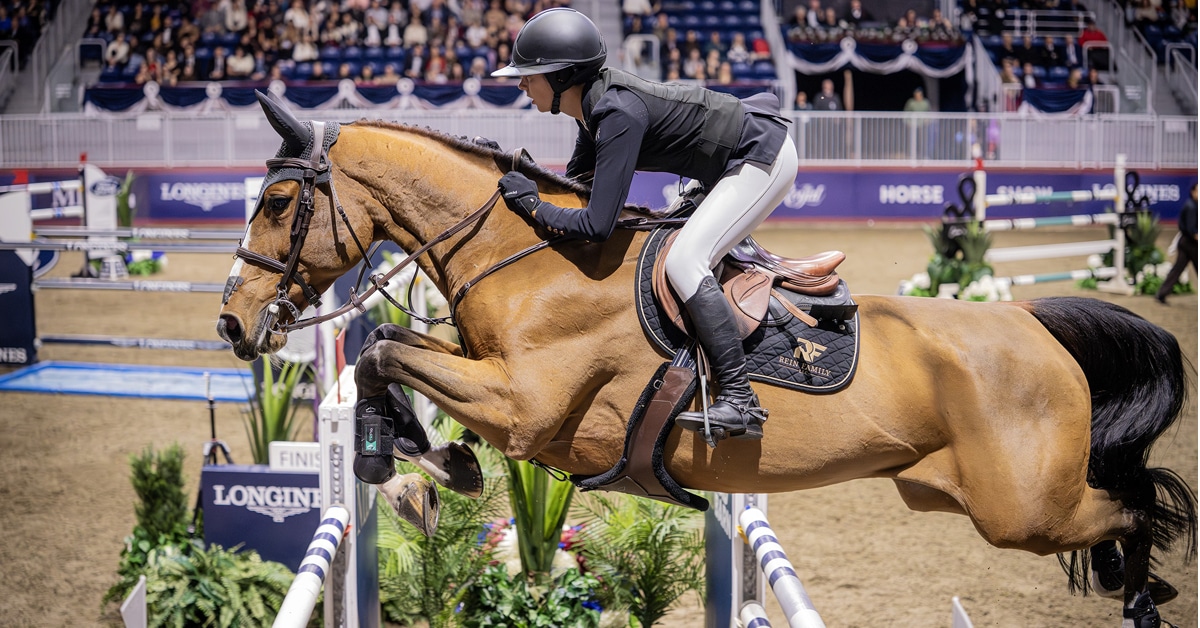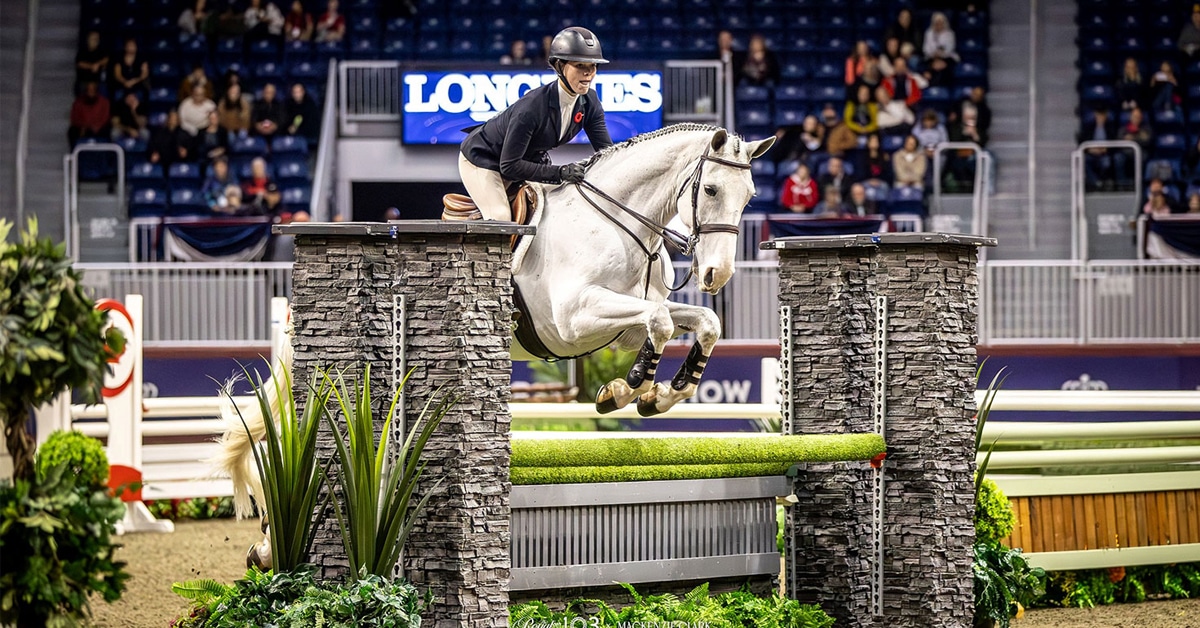A rider who has never competed internationally will have to wait three more years to try after being suspended by the FEI for faking documents in a bizarre attempt to compete at the Paris Olympic Games.
The case is still subject to police investigation, but meanwhile, Michelle Dejonghe, 30, has been fined CHF 6,000 (CAN $9,400) by the FEI and suspended for three years for breaches of Article 164.11 (c) of the FEI General Regulations, “acts defined as criminal by the national law and/or Swiss Law.”
Dejonghe declined to attend a hearing or explain why she had tried to fake eligibility for Paris 2024. However, FEI Tribunal found adequate evidence amongst the paperwork to be satisfied that multiple frauds had occurred.
Dejonghe registered with the FEI in 2019 through the Belgian federation to compete in jumping, although there is no record of any competition starts. Last February, she applied to change her nationality from Belgian to Maltese, supplying the Maltese Equestrian Federation (MEF) with scans of a forged Maltese passport, driving licence and residence certificate. The MEF signed off on the change. It was only after it was processed that suspicions were raised.
In May, Belgian police asked the FEI if she was a registered athlete and showed them a document with FEI and Paris logos entitled “FEI Confirmation for Equestrian Event at the Olympic Games” naming Dejonghe as the chosen rider.
Aside from not being the method by which Olympic entries are handled, the FEI letter-head and content were clearly faked “of poor quality and exhibiting signs of manipulation.” It appeared that Dejonghe had extracted the FEI logo and signature from the earlier genuine FEI letter approving the change of nationality. The FEI launched its own investigation and in due course brought proceedings at Tribunal.
In September, the Maltese authorities confirmed the passport and driving licence were faked, and it was “likely” the residence certificate was a forgery.
The FEI Tribunal said Dejonghe “wilfully and deliberately misled” FEI and the MEF, in conduct that does not “align with the fundamental values of the Olympic sport movement nor with the common principles of behaviour, fairness and sportsmanship…… the offence involved clear elements of fraud and deceit. By using falsified documents, the respondent sought to mislead officials and secure personal benefit.”
The Tribunal said: “It is unclear if the use of the forged FEI document led to an unfair advantage (e.g., attempting to access the Paris 2024 Olympic Games) but the overall circumstances surrounding this misconduct and the adverse inference that the panel has drawn from the respondent’s choice to remain silent in these proceedings are sufficient to establish that an unfair advantage was being sought.”
The FEI said at least one other party has been “victimized” by Dejonghe in connection with this incident. Legal proceedings are ongoing in Belgium; the FEI is registered as an “aggrieved party injured person” and aiming to stay informed of the outcome.
Dejonghe did not respond to multiple FEI requests for information aside from claiming she was herself the victim of identity theft in a horse-selling scam. So it is unknown why she attempted this ruse, especially as the correct procedure for Olympic athlete selection is publicly available on the FEI website – as was the fact Malta had no quota place.
An isolated Mediterranean island south of Italy, Malta has an active domestic equestrian community, but had no registered FEI riders of its own by the deadline for Paris qualifications a year ago. After the FEI ban was announced, a MEF spokesman said “we were conned.” Dejonghe gave MEF documents and promotional materials that appeared to show a successful jumping career. “She showed us photos of her at events surrounded by an entourage… she went to a lot of trouble – and caused us a lot of problems.”
The MEF has also undertaken to be more diligent about document verification following some criticism by the Tribunal. It noted that documents the MEF originally accepted from Dejonghe were of obvious poor quality, with inconsistent fonts and type sizes.
More News
